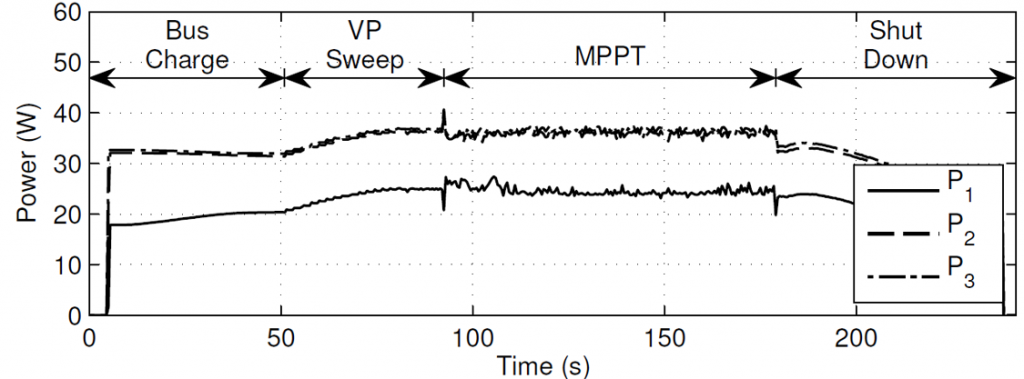Asynchronous and Distributive Maximum Power Point Tracking of Photovoltaic Sub-modules Using Differential Power Processing
Roy Bell with adviser R. C. N. Pilawa-Podgurski
A distributive and asynchronous maximum power point tracking (MPPT) algorithm has been developed and experimentally validated for a series connection of three photovoltaic (PV) sub-modules. The distributive and asynchronous nature of the proposed algorithm greatly relaxes communication requirements needed to operate a solar installation at its maximum power point and accordingly reduces its cost. The algorithm is implemented using differential power processing (DPP), a power management scheme that leverages the fact that power mismatch (e.g., induced by partial shading) between neighboring sub-modules is small, so the power electronics employed need process only the differential power rather than the entire power of a PV module. This benefit both reduces the power electronics power rating and results in a substantial increase in system-level extraction efficiency compared to the state-of-the-art.
Previous MPPT schemes of DPP architectures required synchronization among all converters because of the power coupling between converters inherent in any DPP topology. A new hardware compensation technique is employed to significantly attenuate this coupling and thus eliminate the need for expensive synchronization and extra communication lines. Figure 17 illustrates the behavior of the proposed algorithm over time. The second and third sub-modules are illuminated to produce rated power. The first sub-module is illuminated to roughly 60% of rated power. The maximum power points of three series-connected PV sub-modules are tracked independently without synchronization. An extraction efficiency of 98.4% is achieved using converters with 92% efficiency. This is the first DPP MPPT solution that requires no synchronization.
This work was supported by the Grainger Center for Electric Machinery and Electromechanics and Advanced Research Projects Agency-Energy (ARPA-E), U.S. Department of Energy, under Award NumberDE-AR0000217.
